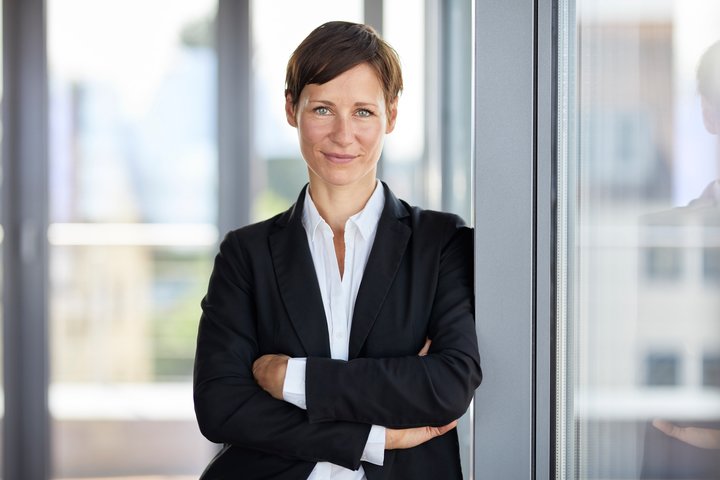This article was produced and funded by Norwegian Foreign Policy Institute – Read more.
Brexit represents a crossroads for British foreign policy. Who will represent England on the international stage?
In 2016, a majority of British voters voted to withdraw the UK from the EU. Suddenly, the country had to find its new role in world politics – outside the EU.
In 2017, then Prime Minister Theresa May presented a vision of a new, global Britain – “Global Britain”.
NUPI researchers Kristin Haugevik and Øyvind Svendsen recently published a scientific article on the topic of the journal Foreign affairs.
Here they examine how the concept of “Global Britain” is being used to develop Britain’s foreign policy role after Brexit.
– It is important for May’s government to convey that it must not close itself off and shut itself off from the outside world after Brexit, explained Svendsen.
The new, global Britain did not choose to leave the EU, but chose to join the rest of the world.
– May argues that Brexit offers more opportunities than limitations for British foreign policy. Britain is now freer to enter into new international trade agreements, Haugevik said.
Search for new footing
Researchers argue that Theresa May and Boris Johnson’s Conservative governments used the “Global Britain” story to:
- refutes international criticism and ridicule
- eliminate domestic worries
- gave British foreign policy a new direction and framework
– We want to investigate why and how the idea of “Global Britain” developed. “We haven’t put any emphasis on the idea of what Brexit would look like or whether it would be a good or bad strategy,” Svendsen said.
The theoretical starting point of this article is that modern states do not only seek physical and material security. They are also concerned with who they are, or who they perceive themselves to be, in the international arena. It sets guidelines for foreign policy rhetoric and space for action.
– When countries feel that their identities and reputations are under pressure, national narratives, such as those about “Global Britain”, can have a stabilizing effect, explains Haugevik.
So how well has the ‘Global Britain’ narrative worked?
Blank canvas
– At first, we see that “Global England” is not very concrete and clear. The UK will conclude a large number of trade agreements in many areas in a short time. There are talks around the world, particularly in the East Asia and Pacific region, Svendsen said.
The UK needs a new trade deal after Brexit. Prime Minister May has stated that they are back on the world map, particularly in Asia. However, work on the trade agreement did not go completely according to plan.
– The challenge for the UK may be that other countries do not see them as the trading superpower they imagine. The UK promises more than its share of resources after Brexit. And a major trade agreement is long overdue. Then the “Global Britain” story became a harder sell, Svendsen said.
Home again
In the article, the researchers show how the “Global Britain” narrative changed direction after 2017, both thematically and geographically. First from international trade to security and defense, then from the East Asia and Pacific region to the Euro-Atlantic region.
The researchers believe that it will be easier for countries to succeed in stabilizing narratives when they are connected to fields and regions where the country already has a good foothold.
– We believe that these two changes give the story of Britain after Brexit increased credibility and power – both at home and abroad. The UK is more at home, Haugevik said.
– As a trading partner, the UK is not getting the recognition they want. But in the field of defense and security, they are a nuclear power. They are also a prominent voice in NATO, Svendsen added.
Generate commitment
Researchers have received a lot of positive feedback. However, one of those who was less satisfied was David Frost. He was the UK’s Brexit negotiator under Boris Johnson’s government.
On Twitter/X Frost wrote that the NUPI researchers’ article depicted “an almost complete disconnect between those who do foreign policy and the academics who write about it”.
– I think that’s because he wasn’t involved in the use of the term, comments Svendsen.
– We think that the British state is experiencing some kind of identity crisis. I understand that this is difficult for one of the parties who plays an important role in this process to accept.
He still thought it was positive that the article also reached those seeking to realize a vision of “Global Britain” even if they did not necessarily agree with the analysis.
Reference:
Kristin Haugevik and Øyvind Svendsen: Somewhere safer? The emergence and evolution of ‘Global Britain’. Foreign affairs2023. doi.org/10.1093/ia/iiad186

“Social media guru. Total beer fanatic. Tv ninja. Typical coffee fan. Amateur entrepreneur. Unapologetic food scholar.”







